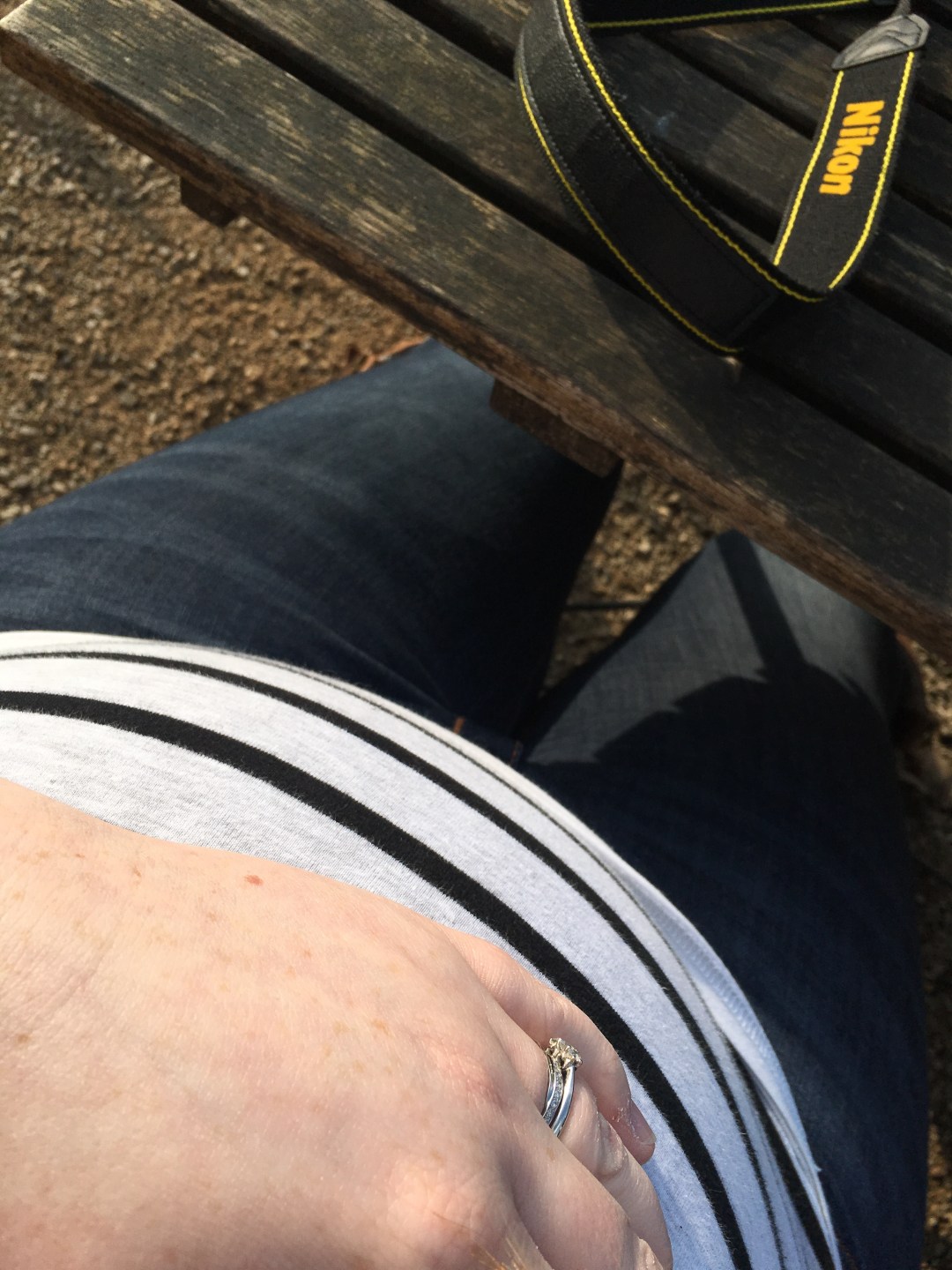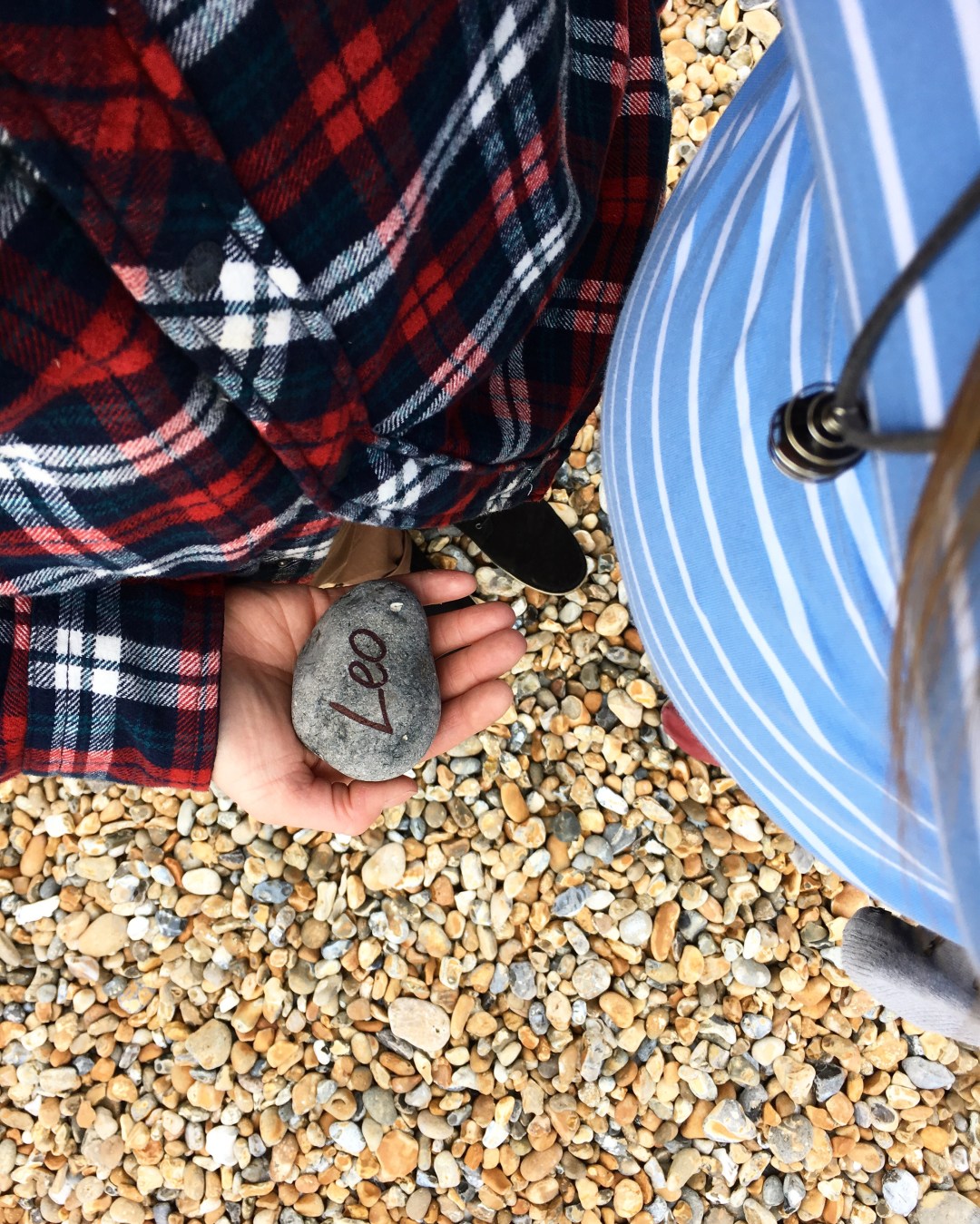All week I’ve been participating in Pregancy After Loss Awareness Week and the final prompt is to write down what I want people to know about Pregnancy After Loss (PAL). It’s a topic that I’ve been mulling over for a while now, and trying to find the right words to express such a complex bundle of issues and emotions.
This week seems an apt time to tackle it, in a bid to help others understand how to support someone through a bittersweet pregnancy.
1. Pregnancy After Loss is different for everyone
PAL is different for everyone, just in the same way that grief and loss is. Our previous experience and our own understanding of it, together with the support network that someone has, can shape how PAL is experienced. People may have previously had miscarriages at different stages, stillbirths, neonatal loss, premature birth, termination, infertility, secondary infertility, recurrent loss, and/or a mixture of it all, or something completely different. Whatever someone has gone through previously, will no doubt, shape where their anxieties lie during PAL.
It’s also important to acknowledge that someone’s anxieties don’t just exist within the scenario that they have previously lived. Leo died before labour at 37 weeks, but our eyes have been opened. Opened wide. That means we are aware of various outcomes and experiences in pregnancy, birth and after that we did not not really consider before. Labour for me is a big anxiety now, even though Leo did not die during labour.
It’s important to accept that, just with grief, everyone is different and there is no right or wrong way to experience PAL. There can and often will be varying levels of joy, excitement, love, grief, fear, anxiety etc. And that’s all perfectly normal, given the experiences that someone has already lived through.
2. Someone’s medical care may be different, but not necessarily better
Many people will experience a different care package during PAL, and this will often be a result of the type of loss they have previously gone through. Their risks, anxieties and also what they themselves push for, will shape what support they have. For us, we have crafted our own team. For others, they may not receive anything different to what they had before.
Whatever care package they get, it doesn’t mean that it is better. Just potentially different. Nor does it mean that they are completely safe for going through loss again. Nothing really provides 100% protection. For anyone.
When you have had a loss, and are the 1% chance of something, no amount of care will reassure you that it can’t happen again. It is often very belittling to reduce someone’s fears with a statement such as but they’ll take better care of you this time. I wrote previously on it here. Also, the death of a baby isn’t always a result of poor care. This statement also has the effect of misunderstanding the circumstances of the previous loss.
3. PAL can also end in loss
Following on from this, it’s important for people to understand that lightning can indeed strike twice. Recurrent loss is present in the world of baby loss. Six months after we buried our son, we miscarried. Leo’s cemetery plot has three sets of siblings. Our friends have experienced loss after loss – you can read Sam’s journey here for example. In my core group of baby loss friends, the number of pregnancies amongst the six of us is comfortably in to double figures – currently no one has a baby at home.
It’s very important to understand that loss is often the only outcome some people have had from pregnancy, therefore just because someone is pregnant again, doesn’t mean to them that this is now a “normal pregnancy”. Surpassing a previous loss stage, whilst is a milestone to be acknowledged, isn’t the finish line.
4. No one has a magic 8 ball – not even you
Often during PAL, people become even more awkward about things than they are with dealing with grief. That means they can say things that are more aimed at reassuring themselves, and not the person that is pregnant. You can receive comments like it’ll be okay this time. As with some of the above, this is not actually helpful. No one can predict the future, so please do not try. My instant reaction when this is said to be is if you are so good at predicting the future, why didn’t you predict that my son would die.
When people are going through a difficult time, what they need is a good listening ear and validation. Their fear is real. Their anxiety is suffocating. Their grief persists. Nothing anyone can say will change that, but to be heard and understood is a massive support. To know that the person who is listening doesn’t want to silence our experiences and fear, but engage with them and respond actively in ways to help is the best thing anyone can do.
5. Just because life is difficult, doesn’t mean we aren’t still just people
You can stil have a normal conversation with that person. Yes, this pregnancy may be different to what you are normally used to, but be brave and still engage with it. Ask them how appointments where, how they are coping, what support they are getting, what they need from people. Ignoring it is incredibly isolating.
Accept that the answer to those questions might not be what you expect. Appreciate their honesty. It is often exhausting to put on a brave face all the time, and answer questions in a way that the other person wants to hear. But the greatest gift you can give someone is to show a willingness to just listen.
Sometimes creating a false account is too much, and they can only provide you with a honest answer. This may be difficult to hear, you may not understand. But please remember, that person is balancing these thoughts and emotions all day, everyday. For you to give ten minutes of your time to allow them to share and express their truth is an incredible gift. Be kind.
6. We do not need our past sugar coated – acknowledge it
My son died. He died. We buried him. We live with his death every day. He was stillborn. Death. Died. Stillborn. These are words that society struggles with, but they are our truth. We do not forget. Follow the persons lead, but ultimately you do not need to sugar coat their past. Saying things like because of what happened before or skirting around the issue highlights how awkward you are finding the situation.
Whilst it is great that you are still engaging, don’t be afraid of accepting the truth. They do not forget, you are not reminding them of something. Saying things like “Are they doctors assessing the same a issues that led to Leo dying?” highlights that you understand what has happened to us.

7. Say their name – do not forget their child
A new pregnancy does not mean anyone forgets the child that they lost. Just like a living sibling doesn’t get replaced by a new one. Remembering and acknowledging their previous child is the greatest thing you can do for someone, pregnant or not. There is a fear in PAL that people will forget and think that you are trying to replace a previous child that has been lost. By using their name, asking about them, including them, you are showing that parent that you remember and that you care about their children.
8. Be mindful of their loss
When people are pregnant around us, it’s very easy to to use throw away comments about parenthood. These can actually be very hurtful to someone who has previously had a child who has died. Often the comments can assume this will be our first child. Comments such as you’ve got all this to come or just you wait till you have kids are not helpful. I may not have a child at home but I am still a mother, parenting incredibly differently to you. I also, should have had it all to come, and should already have children with me at home. These comments just tell us that you have forgotten our loss, and our pain.
9. It will be hard, but it can also be full of joy
PAL is hard. There is no denying that. However, people can still experience joy. They can still do normal pregnancy things, as long as they feel safe and able. Often people feel the desire to embrace certain things that they didn’t before. Or that they want to do things in case this is their only time with this child – perhaps a photo shoot or a baby shower.
Everyone is different with how they will embrace joy in PAL but whatever they do, it should be up to them to decide that they feel safe to do it. I wouldn’t recommend putting someone in a position and assuming that they’d comfortably take part in things unless you truly knew how to adapt it to their emotions or discussed it with them first.
Joy is most certainly present but it can be short lived or held together with caveats. Go with their flow, be mindful and be gentle. Scans can be reassuring, but often that reassurance leaves in the space of a few weeks, days or even just moments.
10. The fear of loss does not end at PAL – should all be well, Parenting After Loss is equally challenging
Whilst I have not had this experience yet, my anxieties are already present in regards to the complexities of parenting after loss and managing my own anxieties of baby loss following a live birth. Again, our eyes have been opened, our trust in ourselves shattered, and our awareness of the fragility of life is ever present. Be gentle on the parents at this time, they will need your continued support. Getting to the other side, with a breathing baby does not remove the grief or longing for the child that died, nor will it remove any anxieties for their new baby. Often in PAL, people can’t allow themselves to even mentally prepare for a living child.
The challenge of knowing how to parent both living and dead children will no doubt be a learning experience, and equally having to manage other people’s expectations of this will take some time to settle.
Overall…
Please do not be afraid of us. We need kindness, love and support. These are natural qualities all human’s should posses and have the capacity to giving to another. We long to remember our babies who have died and we fight to bring home the ones that we are carrying. Being understanding of this balance is so crucial to our fight.
Here are some helpful places should you be more interested in Pregnancy After Loss
Pregnancy After Loss Support Magazine
Another Pregnancy? SANDS booklet
Tommys – Stories of Pregnancy After Loss
Thank you,
-J x











This is such a helpful post Jess – thank you. I plan to share it with my friends if/when we get to the stage of going through PAL.
LikeLike
So we’ll said. Everything. Sending you continued well wishes. Xoxo
LikeLike
*well
LikeLiked by 1 person